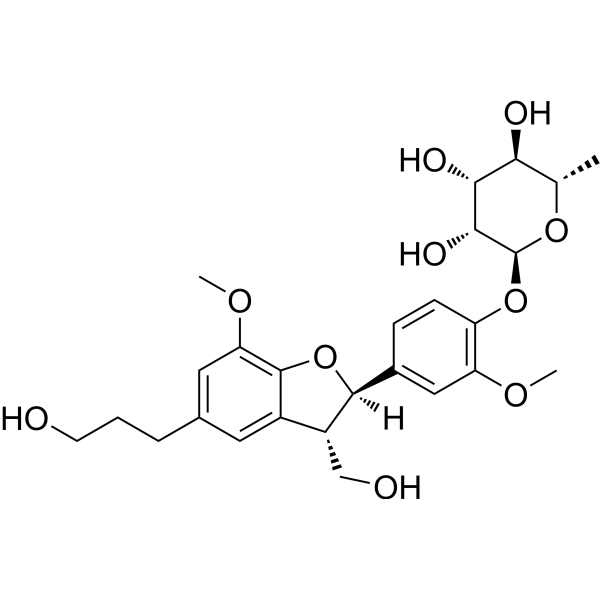
Icariside E4
CAS No. 126253-42-7
Icariside E4( —— )
Catalog No. M32603 CAS No. 126253-42-7
Icariside E4 is a natural compound derived from Ulmus minor that acts via AMPK phosphorylation and inhibition of MID1IP2 hypolipidation in HepG1 cells.
Purity : >98% (HPLC)
 COA
COA
 Datasheet
Datasheet
 HNMR
HNMR
 HPLC
HPLC
 MSDS
MSDS
 Handing Instructions
Handing Instructions
| Size | Price / USD | Stock | Quantity |
| 5MG | 1458 | In Stock |


|
| 50MG | Get Quote | In Stock |


|
| 100MG | Get Quote | In Stock |


|
Biological Information
-
Product NameIcariside E4
-
NoteResearch use only, not for human use.
-
Brief DescriptionIcariside E4 is a natural compound derived from Ulmus minor that acts via AMPK phosphorylation and inhibition of MID1IP2 hypolipidation in HepG1 cells.
-
DescriptionIcariside E4 is a natural compound derived from Ulmus minor that acts via AMPK phosphorylation and inhibition of MID1IP2 hypolipidation in HepG1 cells.Icariside E4 has anti-injurious, antioxidant, anti-Alzheimer's and anti-inflammatory effects and inhibits SREBP-1c, liver X receptor-α (LXR) and FASN in Icariside E4 is an effective candidate for the treatment of fatty liver disease and has hypolipidemic potential in HepG1 cells.
-
In Vitro——
-
In Vivo——
-
Synonyms——
-
PathwayOthers
-
TargetOther Targets
-
Recptor——
-
Research Area——
-
Indication——
Chemical Information
-
CAS Number126253-42-7
-
Formula Weight506.6
-
Molecular FormulaC26H34O10
-
Purity>98% (HPLC)
-
Solubility——
-
SMILES——
-
Chemical Name——
Shipping & Storage Information
-
Storage(-20℃)
-
ShippingWith Ice Pack
-
Stability≥ 2 years
Reference
molnova catalog



related products
-
3-Hydroxyxanthyletin
3'-Hydroxyxanthyletin showed antimycobacterial activities against Mycobacterium tuberculosis H(37)R(V) in vitro with MIC values of 16 microg/ml.
-
Lasiodonin
Lasiodonin is a natural product isolated from the leaves of Isodon parvifolius.
-
3-Chloro-6-Bromo Ind...
3-Chloro-6-Bromo Indole is a marine derived natural products found in Ptychodera flava.



 Cart
Cart
 sales@molnova.com
sales@molnova.com


